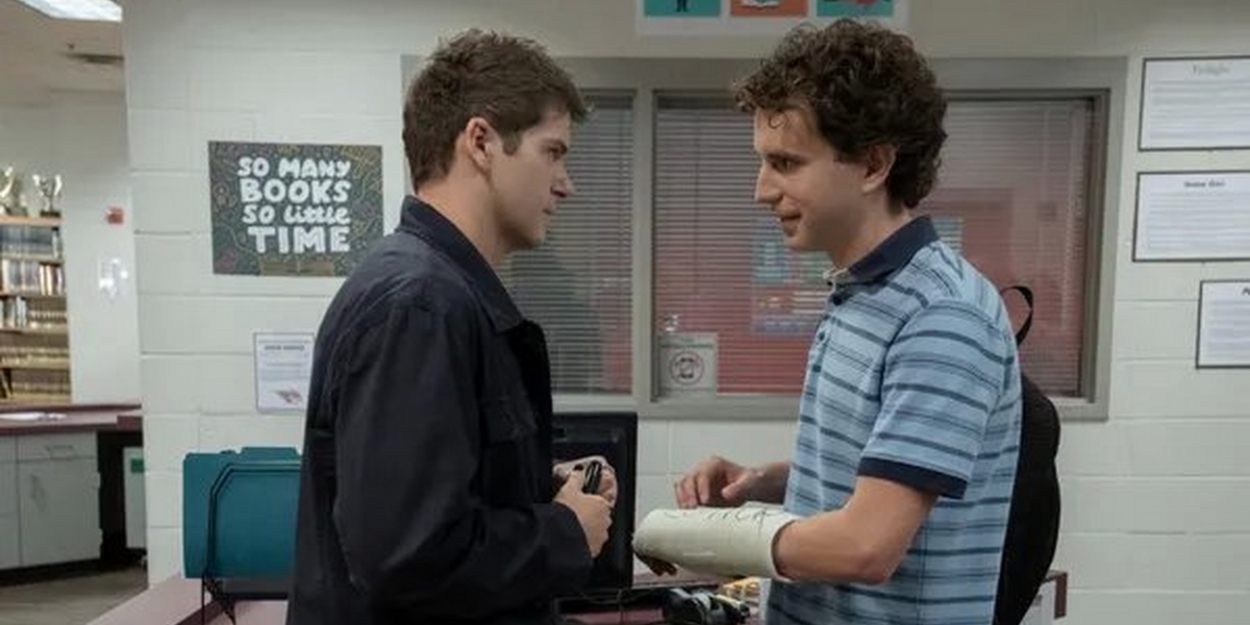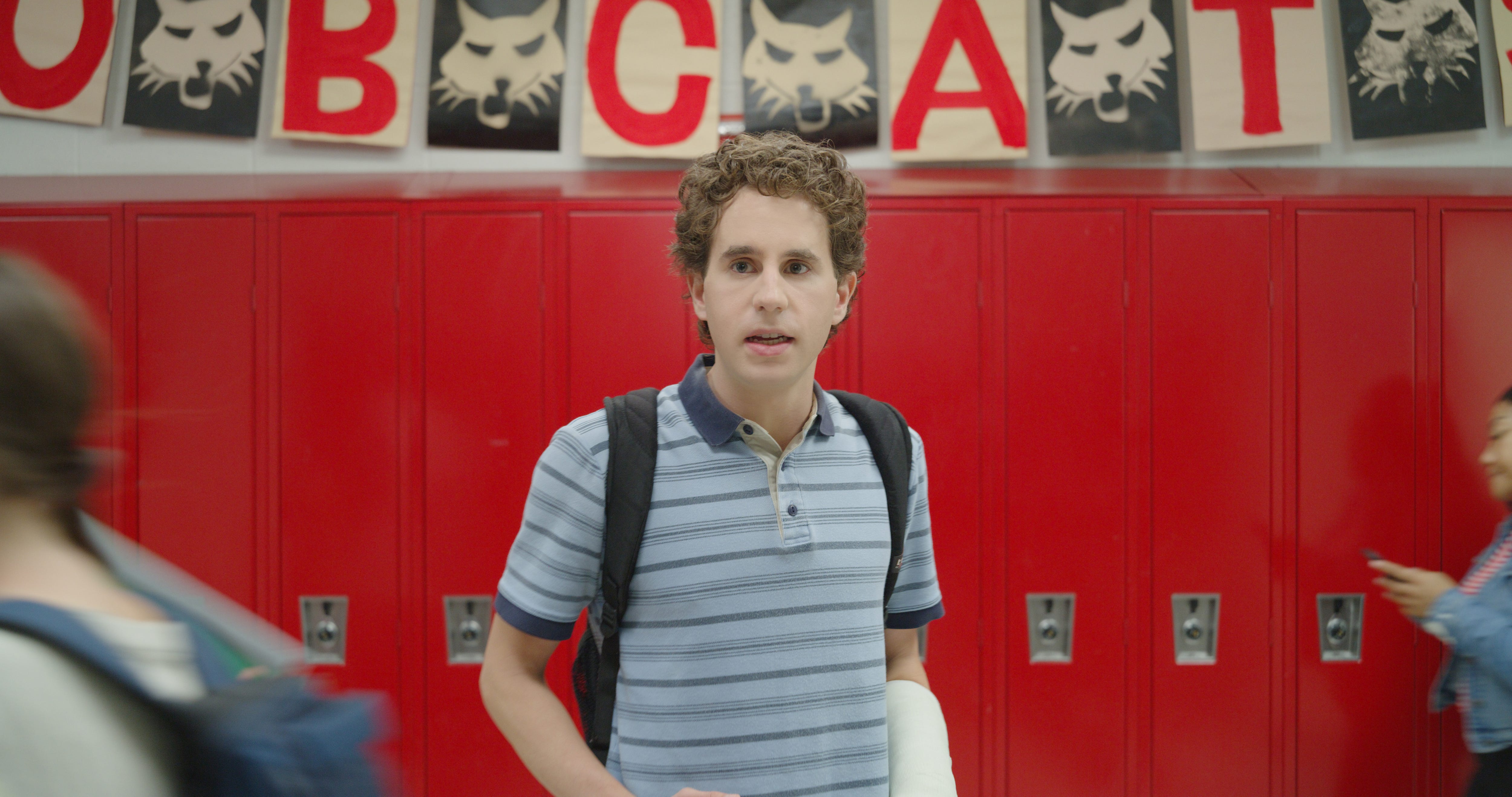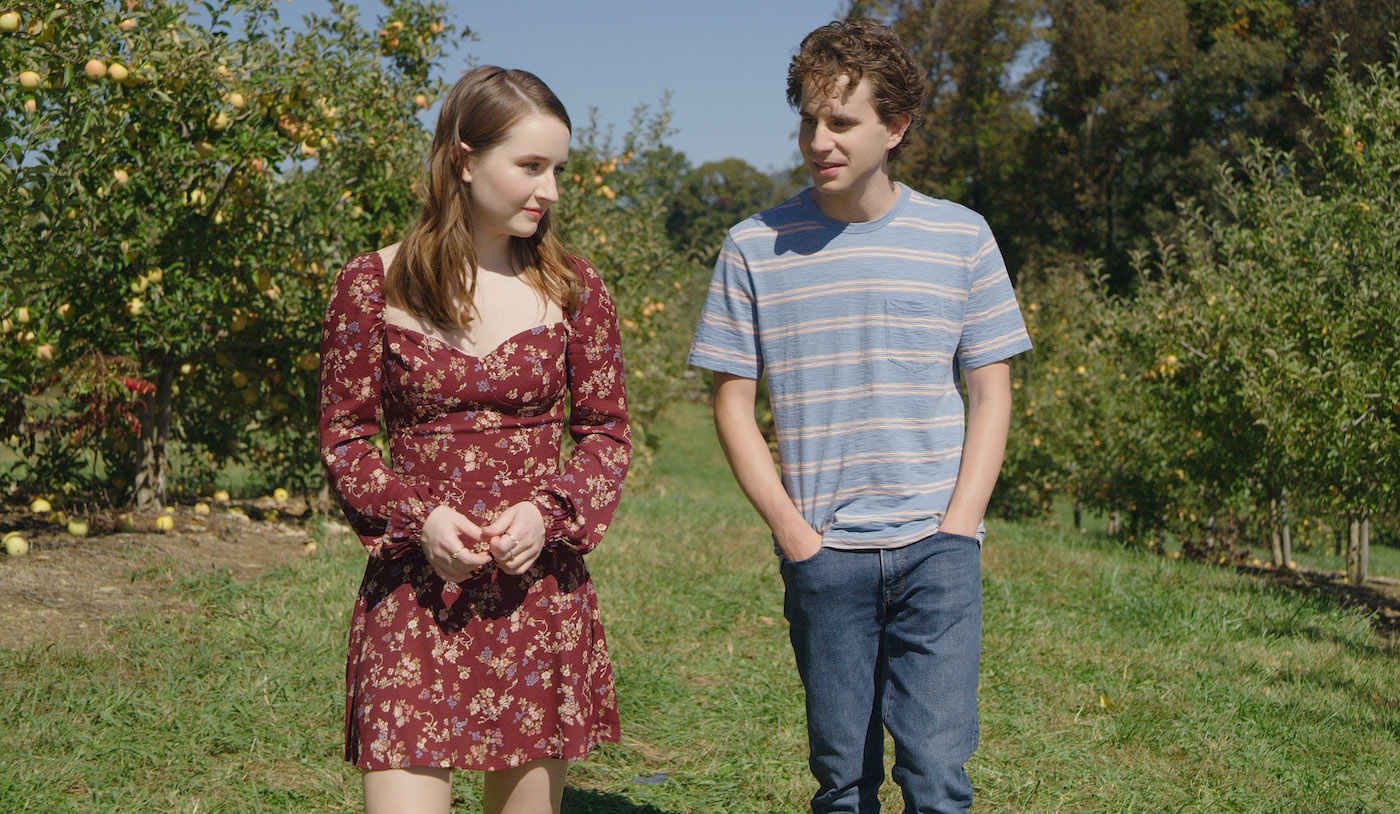Here on the internet, we all love discourse, and what produces discourse better than a film adaptation of an infamously controversial stage musical?
Dear Evan Hansen premiered just a few weeks ago, but the memes and critiques have been going strong for months, if not years. Based on the Justin Paul, Benj Pasek, and Steven Levenson musical that took Broadway by storm—and changed the shape of theater kid beef for generations to come—the film is a pretty average teenage drama. Socially anxious and virtually friendless, Evan Hansen (Ben Platt) accidentally inserts himself into the middle of a family tragedy when his therapy exercise is mistaken for the suicide note of his peer, Connor Murphy (Colton Ryan). Spinning a web of lies and fake emails, Evan attempts to offer what he believes to be hope to the grieving family, all while becoming closer and closer to Connor’s sister Zoe (Kaitlyn Dever), his long-time crush. When Evan’s house of cards inevitably begins to collapse, he is forced to ask himself what it means to help others, and what it means to help yourself.

Dear Evan Hansen is a boring movie, on almost every level. Its staging and cinematography are infuriatingly forgettable. Creating a movie musical gives one an opportunity to take some liberties with reality. Dear Evan Hansen ignores every single one of these opportunities. All songs are delivered in an awkward realism that borders on something viscerally uncomfortable, filmed the same way as the rest of the movie. Director Stephen Chbosky was presented with an interesting cinematic opportunity, and decided instead to portray the film’s musical numbers in the most boring way possible.
Dear Evan Hansen’s pervasive boring-ness is perhaps best encapsulated by its widely critiqued casting of Platt—the original Evan from the stage musical, who is almost 30—as the teenage main character. Platt’s casting has already been mocked to death, but it’s worth restating: Ben Platt does not look at all like a teenager. The choice to cast Platt, again, is boring in its complete aversion to risk, which makes the film genuinely difficult to take seriously. Why not take a chance on a new actor, and give someone an opportunity at a big break? Do we have to go with an actor who we’ve already seen play the role? But Dear Evan Hansen errs on the side of safety, and it’s to the film’s detriment. That said, the casting is not all bad. Dever, as well as Amy Adams—who plays Cynthia Murphy—knock their performances out of the park. Sadly, it’s not enough to save the film.

Another boring thing about the film is its oft-debated representation of mental illness. Dear Evan Hansen is billed as a life-changing, impactful, historic film. But is it? Is it really? The musical feels bizarrely out-dated for something that only came out in 2016. What Dear Evan Hansen offers is representation—which is good, don’t get me wrong! But that’s all it offers. The movie’s ignorance when it comes to real mental health activism is most apparent in the case of the Connor project, whose goal is to raise money in order to refurbish an apple orchard in Connor’s memory, as opposed to, you know, raising money for organizations which work to provide resources to mentally ill people so that the quality of their lives can improve and they don’t have to die and get orchards refurbished in their memory. Dear Evan Hansen’s concept of mental health activism is about as boundary-pushing as lukewarm tap water. It begins, and ends, with the individual. The film’s core message is that we all need to be kinder to one another, and understand that everyone has struggles. Once again, that’s absolutely a good thing! But what about providing resources to people who can’t afford therapy or medication? What about systemic changes, so that mentally ill people can access all the opportunities non-mentally ill people can? Ultimately, Dear Evan Hansen is just like its apple orchard: a sweet, but ultimately empty gesture. Visibility is good; but it’s 2021, and representation alone is not enough.

Where Dear Evan Hansen shines, however, is in the changes it makes to its source material in adaptation. The film features a new song, sung by the character Alana Beck (Amandla Stenberg). This song provides a much needed alternate perspective on mental illness, emphasizing the importance of solidarity between people with mental illnesses. This song gives Alana’s character a new depth, and helps to paint the story not just as the struggle of Evan alone, but as that of a collective. The film’s saving grace, though, is the way it alters the musical’s ending. These changes allow Evan the capacity to be a flawed human, to make mistakes, and to search for forgiveness. The film treats him with dignity, and gives him the agency he so lacked in the source material. This new ending, where Evan takes responsibility for his actions, is ultimately far more humanizing than the musical’s ending.
There are a lot of people in this world who truly love Dear Evan Hansen, both as a work of art and for the representation it has provided. If you get something out of Dear Evan Hansen, then more power to you! But that does not make the film immune to criticism. Works of art can impact you and be personally helpful, and you can still accept the fact that they aren’t perfect. Like its characters, Dear Evan Hansen is flawed, and complicated, and not just one thing. It would be so easy if it were terrible, but it is, genuinely, not a total failure. Its ending is strong, and it has performances in it that really shine. That said, these things are not enough to make it a truly good movie. Dear Evan Hansen is worth seeing if you’re a fan of the musical, or interested in adaptations more generally. But beyond that, it’s ultimately forgettable.
2/5 STARS
